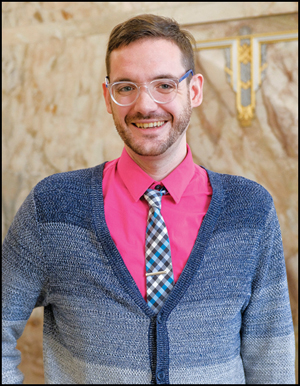

In this episode, Columbia literature curator Melina Moe sits down with Trevor Owens, the head of Digital Content Management at the Library of Congress. Trevor is the first person to hold this position because it’s new— in fact, digital content management is new to most institutions.
Melina and Trevor discuss the many, sometimes contradictory, challenges of dealing with digital content. How do we keep the things we want to preserve, but get rid of things that inadvertently get swept into digital archives—like personal, sensitive, or even offensive information?
Melina’s conversation with Trevor is wide-ranging, covering topics including digital forensic sleuthing, recovering overwritten data on wiped hard drives, humanities verses computer science training for librarians, and the overlooked labor that keeps libraries going. Despite working at one of the largest repositories in the country, Trevor also brought up the importance of preservation at smaller community archives, like those in tribal communities. Finally, Melina and Trevor discus the “more product less process” movement within archives, including the ethical questions raised by archival acquisitions like Stanford’s 4chan collection.
Overdue Conversations is a podcast about the ways archives inform our discussions around history, literature, and politics. From digital publishing to reparative justice, climate change to public health, this series of overdue conversations takes archival documents out of the stacks and into the public forum to consider how collecting practices, selective reading, and erasure of past knowledge informs and distorts contemporary debates.
Music is by Poddington Bear via the Free Music Archive used under Creative Commons license.
Overdue tile design by Amy Howden-Chapman. Researched and produced by Lina Moe and Thai Jones with assistance by Amanda Martin-Hardin.